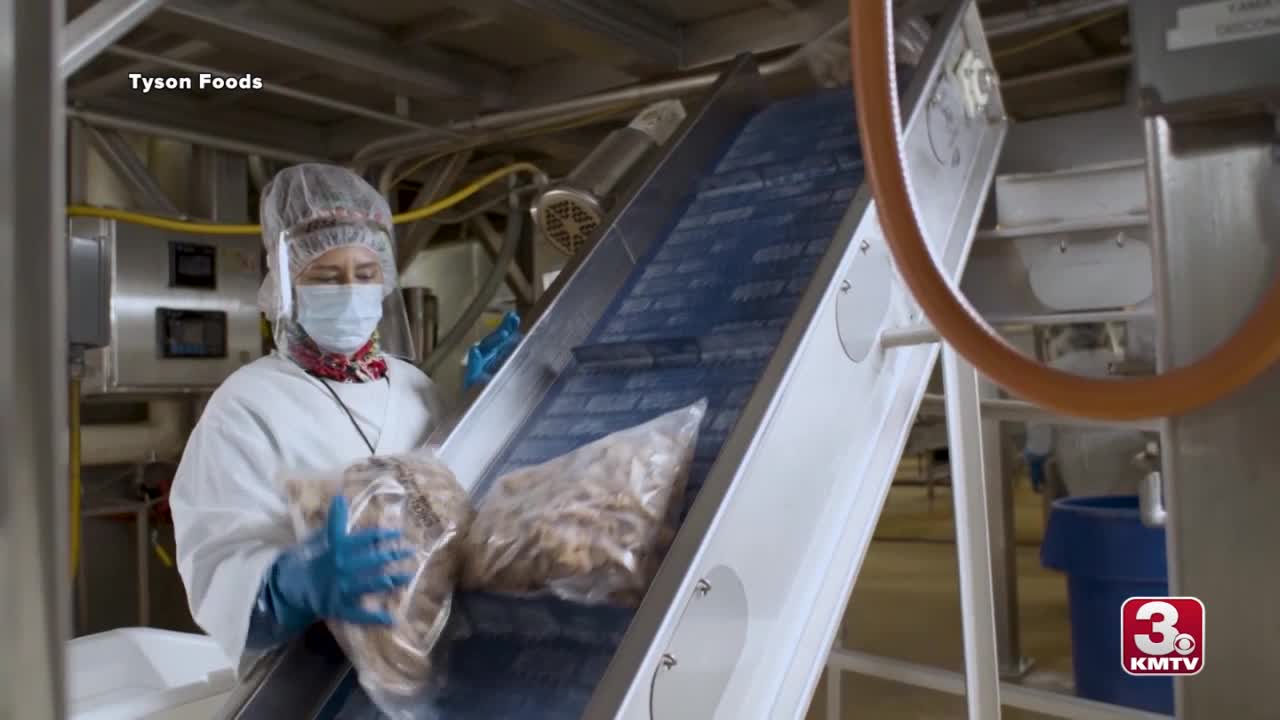OMAHA, Neb. — The pandemic has exposed the weaknesses of working conditions for essential workers, like those at meat packing plants.
"What we've observed is just a very complex work environment, with a lot of folks in a very small venue," executive director of emergency management and biopreparedness at UNMC, Shelly Schwedhelm said.
The pandemic has also forced employers in all types of work settings to reevaluate how they run.
"There's a lot that everyone can do in their environments no matter what the environment is. It's just really thinking about how do I further space people, how do I change and do things different than what we've always done," Schwedhelm said.
As employees develop increased amount of stress at work, a Greater Omaha Chamber benefit program looks to step in and help.
"Most of the clients that we work with are frontline. A lot of the challenges that we're addressing are financial need," director of workforce services at the Chamber Chad Mares said.
The program, called Greater Omaha Worklab or GRoW, has workers called navigators that help connect employees to different resources to maximize productivity, weather that's dealing with mental health or financial issues. Danielle Ward-Thompson is a navigator and she's seeing the struggle during the pandemic first hand.
"So right now a lot of mental health referral, EAP referrals. A lot of garnishments because of the financial condition of the economy,"she said.
GRoW hopes to help employees not only on the front lines but in all types of fields.
"It's not just those on the frontline that are going through difficult situations. Life happens to everyone," Mares said.



